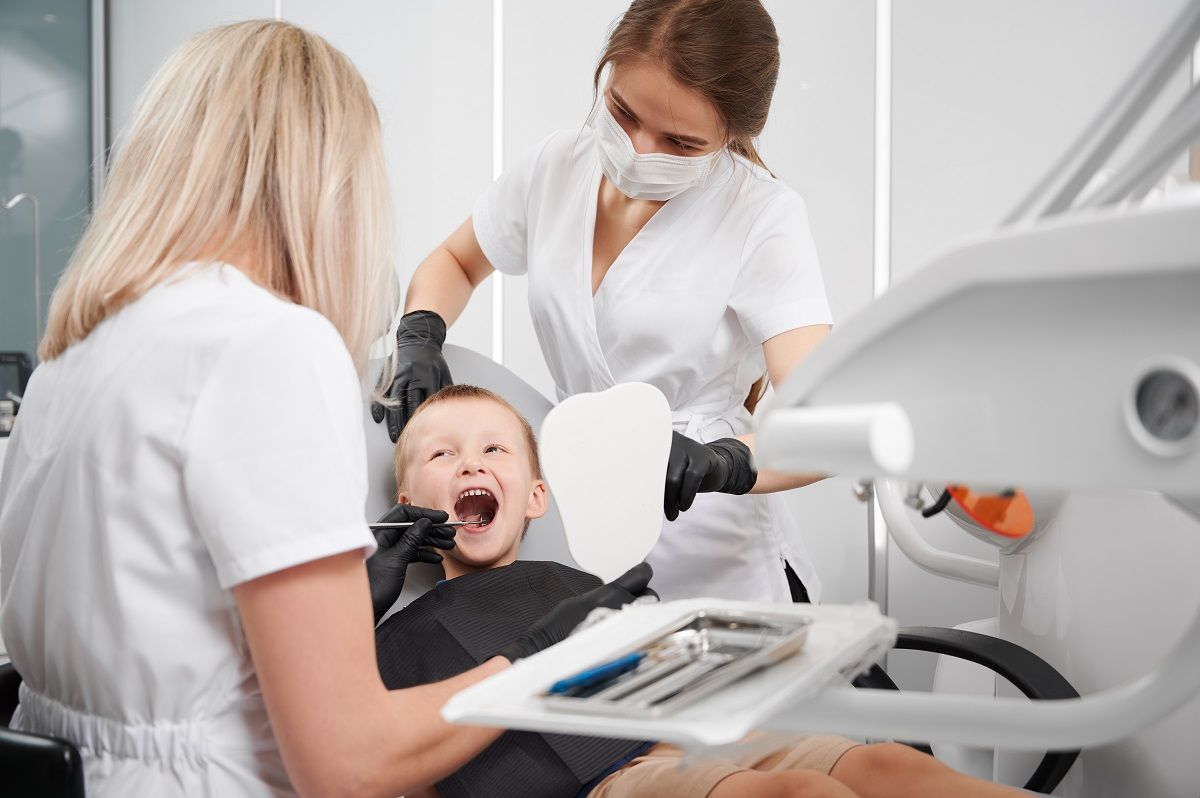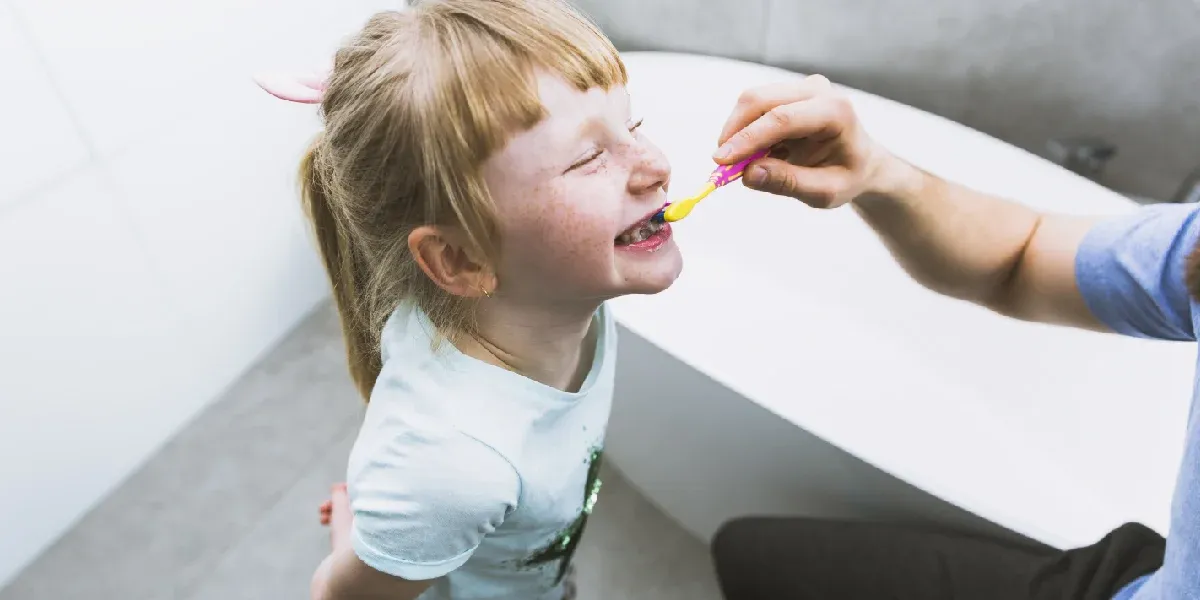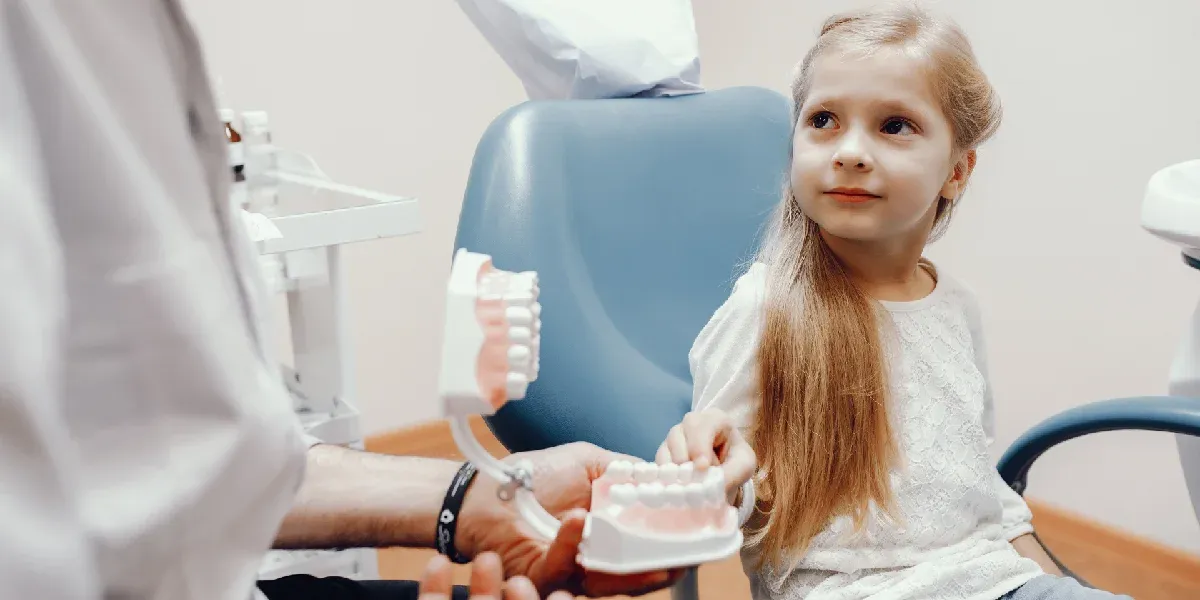
Dental Implants for Baby Teeth: Are They Worth It?
On average, a child's primary teeth usually fall at 6 or 7, though exceptions are always there. Some children might lose it early; others can have a delayed process. Of course, not all teeth fall out simultaneously, and you can only expect one or two teeth of your child to fall out. The primary teeth fall out to make room for permanent teeth. After your child's primary teeth have fallen out, permanent teeth erupt and replace them naturally. However, sometimes, a few of the baby's teeth remain while you grow as an adult. These are technically known as "over-retained" baby teeth.
“Losing teeth as a kid is fantastic, but adult missing teeth will impede your smile and cause dental problems. Fix your adult missing teeth with dental implants and smile with confidence”.
Over-retained baby teeth are primary teeth that remain in place for at least more than a year than they are supposed to fall out. It is estimated that around 25% of people have one or more over-retained baby teeth. These teeth usually never fall out on their own and must be extracted in most cases. When adults lose their over-retained baby teeth, they can replace them using dental implants.
You might wonder whether dental implants are suitable for baby teeth. Dental implants provide a successful replacement of missing teeth by restoring their function. While dental implants offer a safe way to replace baby teeth; however, they are never an option for children below a certain age. Only adult baby teeth can be replaced by dental implants where the person's jaw growth has finished. If dental implants are placed in a young patient, it can impede jaw growth and prevent other teeth from growing normally. Read on to learn more about dental implants on adult baby teeth and how the process works.
“Over three million people in the US alone choose dental implants over other tooth replacement options. Interestingly, every year, 500,000 people are added to this number”.
Reasons for Adult Baby Teeth
Some people's primary teeth don't fall out entirely by the time they naturally do. According to surveys, 25% of adults still have some baby teeth that become unfunctional with time. The main reasons for over-retained baby teeth are:
- Need More Room to Accommodate Permanent Teeth
Sometimes, the person has an excess number of teeth in addition to the regular number of teeth. When there are already enough teeth in the mouth, there isn't enough room to accommodate the permanent teeth.

- A Family History of Having Baby Teeth as An Adult
Some people have adult baby teeth because of genetics. There is no specific reason why this happens. But, people who have over-retained teeth can pass them on to the next generation.
- Mouth Trauma or Having Severe Mouth Infections
Over-retained baby teeth can cause various dental problems when they aren't treated. These include dental caries, teeth overcrowding, teeth misalignment, impacted permanent teeth, etc. The other causes of adult baby teeth are pathology, trauma, infections, or late eruption.
- Tooth Injury or Bone Infusion
Sometimes, an injury to the tooth nerves or roots can also interfere with the growth of permanent teeth. As a result, the baby's teeth remain as the person grows as an adult. Another reason for over-retained baby teeth is known as "ankylosis." It is a condition in which the primary tooth becomes fused to the bone, so it doesn't fall out naturally.
Replacing Baby Teeth with Implants: Are they Worth It?
Statistical evidence shows that baby teeth as an adult that last till age 20 will stay in the jaw for about 40 years. It will usually fall out or become loose by that time. And that is when it will need replacement, and one can avail of dental implants. Dental implants act as artificial tooth roots and are surgically placed in the jawbone. Besides restoring your smile, they provide significant oral health benefits. Some of these include:
- They prevent bone loss and keep you free of gum disease.
- They offer a permanent tooth replacement solution.
- They behave just like your natural teeth.
- They aid in the chewing process and let you speak efficiently.
- They keep the adjacent teeth stable and prevent teeth from shifting.
If your adult baby teeth need a tooth replacement, be willing to consult your dentist. A dental implant provides a comprehensive solution to replace your missing tooth. It fuses well with your jawbone and provides excellent tooth stability.
Dental implants are more expensive than other tooth replacement options. However, they offer an excellent restoration option to replace your extracted tooth. The adult baby tooth must mainly be extracted because it doesn't fall out naturally. When this happens, you must avail yourself of a tooth replacement option to fill the gap. If the gap isn't filled out, it creates dental problems for other teeth, overcrowding, tooth shifting, bacterial infection, gum disease, etc.

The process of dental implants seems quite long; however, it is an excellent investment for long-term benefits. Today, dental implants are gaining great prominence throughout the world because of their durability and strength. Besides providing better aesthetics, they can improve your bite, speaking ability, and chewing capacity. They are very durable and have a success rate of over 95%. They can even last for an entire lifetime with proper care.
How Dental Implants Replace Baby Teeth?
The dentist will follow a step-by-step procedure for fixing dental implants on missing teeth. The process of dental implants is generally divided into three stages, i.e.,
- Placement of implants
- Attaching the abutment
- Crown fitting
However, the entire procedure of dental implants is divided into eight steps. Here we will enlist those eight steps to keep you well-informed. Let's have a quick look at these.
- Initial consultation with the oral health professional
- Comprehensive examination
- Bone grafting (if required)
- Initial incision
- Cutting and drilling
- Healing period and secondary procedures
- Healing cap removal
- Abutment and crown replacement
Today, many types of dental implants are in use. Titanium dental implants are, however, most commonly used and offer the most versatile solution to replace missing teeth. Even if you have a challenging case in replacing your adult baby tooth, these implants can fix it quite well. Dental implants usually take about one to two hours, on average. However, the healing time is estimated at around three to six months. The titanium alloy implant will heal and infuse the surrounding bone tissue during this time.
Can Your Child Get Dental Implants?
It is possible to fix dental implants on baby teeth; they can also work on your child's missing tooth. However, there are strict guidelines by ADA (American Dental Association). ADA recommends that dental implants be installed on teeth when bone growth is complete. Generally, in boys, bone growth gets completed until they reach age 21. Whereas in girls, the estimated age is around 19 years.
Even with all the precautions, your child might lose his tooth. It could be due to trauma, a sports injury, any associated medical condition, and so on. It can be uncomfortable when your child loses his teeth, specifically the front teeth. It can directly impact your child's self-esteem, and here are a few options that can help.
- Removable partial denture: The removable partial denture has one or more artificial teeth, and they can replace your child's missing tooth or teeth.
- Bridge: A dental bridge can also help replace a missing tooth. You can choose a tooth-supported fixed or resin-bonded bridge for your child.
- Space maintainers: If your child has lost their baby tooth earlier than it naturally does, a space maintainer can help. Your child can have a fixed or removable space maintainer, depending upon his condition.
Concluding Thoughts
Dental implants are excellent restorative options for missing teeth. They are not suitable for children; however, they work well for baby teeth as adults. Visit your dentist if you need dental implants on your adult baby teeth and restore oral health.
Contact your Stockton dentist for kids, Dr. Sajjad Rizvi, DDS at Happy Kids Dental, to learn more about Dental Implants for Baby Teeth.
Resource:
*This media/content or any other on this website does not prescribe, recommend, or prevent any treatment or procedure. Therefore, we highly recommend that you get the advice of a qualified dentist or other medical practitioners regarding your specific dental condition*
Subscribe To Our Newsletter
Get Updates And Learn From The Best


